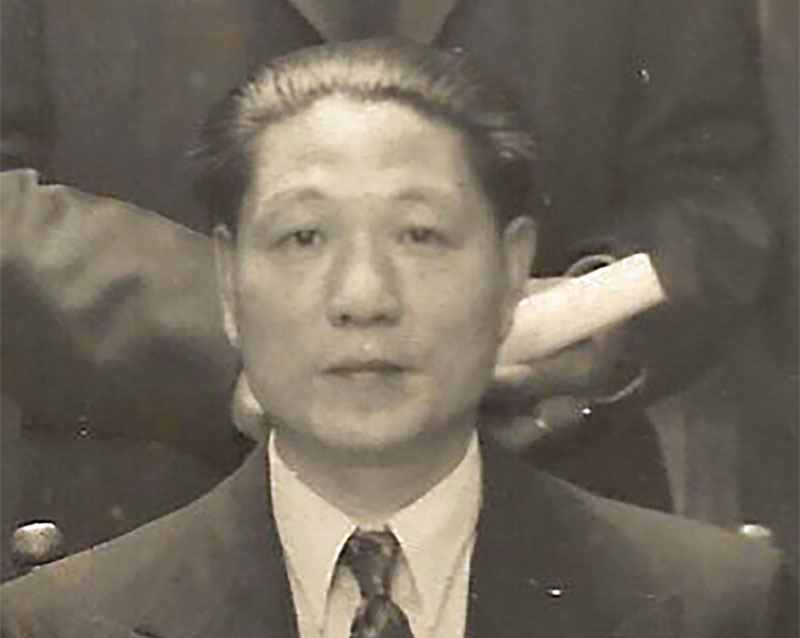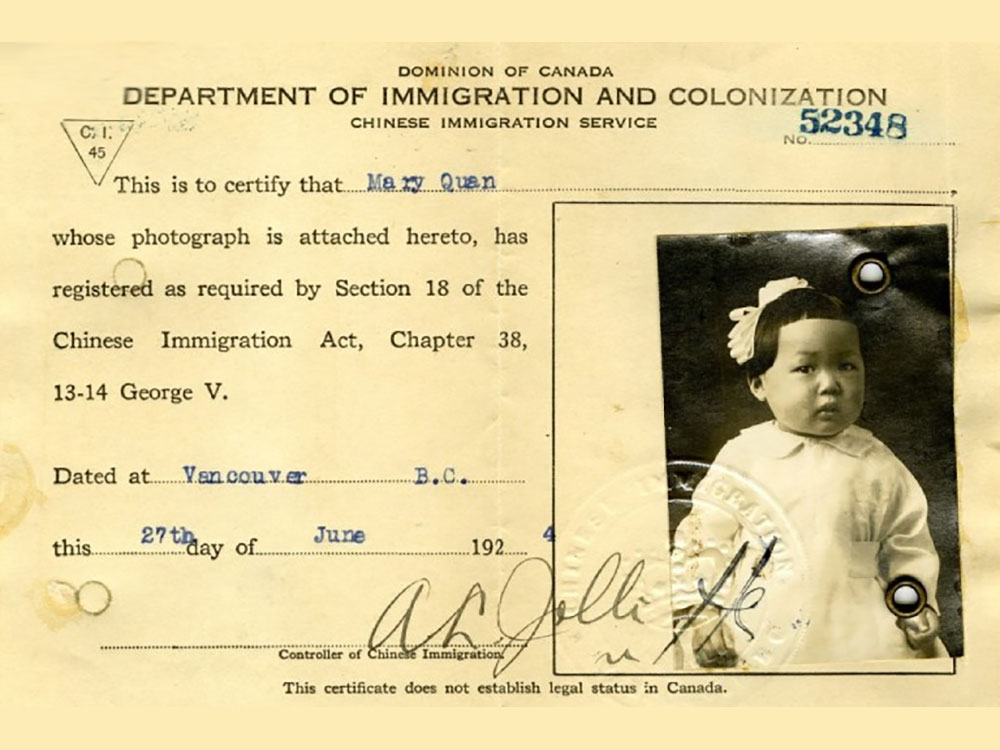One hundred years ago, Chinese community leaders from across Canada travelled to Ottawa to attend Senate hearings on the 1923 Chinese Exclusion Act.
“Seven or eight members of the race decorate the Senate galleries daily during the discussion of the bill,” was how the Vancouver Province put it.
Far from being “decorations,” Joseph Hope, T.C. Mark and the other community leaders were in the fight of their lives, hoping to convince senators to amend Bill 45, or An Act Respecting Chinese Immigration, passed by the House of Commons days earlier. It effectively barred any new immigrants from China and required anyone of Chinese origin to register with the government.
In defending the legislation, then-Liberal prime minister Mackenzie King held that “it is not in the interests of Canada to admit to this country large numbers of persons from the Orient.”
Vancouver MP H.H. Stevens readily agreed, stating that unless measures were taken, “we might have thousands of Chinese landed here and experience another riot,” referring to the 1907 anti-Asian White Riot in Vancouver that had international repercussions.
Victoria MP and future B.C. premier Simon Fraser Tolmie railed the “Chinese do not and never will assimilate with our people.”
“In the United States at the end of the Civil War, there was a coloured population of only 400,000,” he warned. “This has increased until at present time there are over 10 million. Surely that is enough to make Canadians sit up and take notice of this Asiatic question.”
No Chinese-Canadian voices were heard. They, along with First Nations, had been robbed of the right to vote beginning in 1872. Nor could they stand for office.
The bill that reached the Senate was draconian. It prohibited the entry of “persons of Chinese origin or descent irrespective of allegiance or citizenship;” and forced those already in Canada to register at government offices within 12 months. Even if registered, Chinese Canadians could only be away for a maximum of two years, or they lost their right of return. Those failing to register by the deadline could be fined, arrested or deported.

Hope, Mar and other community leaders fought on, lobbying senators to amend the act. They did so as representatives of a mobilized community. Close to 2,000 Chinese Canadians had gathered in April at Victoria Hall in Toronto to protest the legislation. They created associations to fight the proposed law in Edmonton, Medicine Hat, Saskatoon, Kelowna, Kamloops, Sault Ste. Marie, Prince Rupert, Vernon, Revelstoke, Trail, Fernie, Nelson, Cumberland, Nanaimo, Victoria and Vancouver.
An appeal to delay the legislation and open trade negotiations from the leader of the republican revolution in China, Sun Yat-sen, fell on deaf ears.
In the end the Senate introduced several amendments, but the final version of the Chinese Exclusion Act, given Royal Assent on June 30, 1923, was terribly discriminatory and its effects immediate.
Over the next 20 years only a handful of Chinese newcomers ever made it to Canada. Forced separations of families imposed severe trauma, with many of the wives in China left to fend for themselves and their children.
Meanwhile, Europeans were being offered free entry, free land and free passage to Canada.
The Chinese Exclusion Act was not a random hit. As we reveal in a coming research report, “1923: Challenging Racisms Past and Present,” that year saw a racist backlash, emanating from B.C., with further genocidal measures imposed by federal and provincial governments against Indigenous peoples, including making attendance at residential schools compulsory and violently repressing the movement for First Nations sovereignty.
Indigenous, Black and other racialized communities remained sites of resistance, but the next two decades were especially difficult, culminating in a spasm of ethnic cleansing of Japanese Canadians from B.C. during and after the Second World War.
Much has changed since 1923. Or has it? To be sure, racialized communities waged and won important battles against white supremacy in postwar decades. Other social movements (including labour, women and LGBTQ2S+ rights advocates) achieved important strides in equity. Yet systemic racism remains embedded, giving rise to ongoing Indigenous resurgence, to Black Lives Matter, to the movement to stop anti-Asian racism.
Yet even now, we see growing resistance to social change, deadly Islamophobia and rising Sinophobia in the guise of “Chinese interference.”
Are we witnessing the formation of a conservative backlash similar in some ways to what happened in the 1920s?
Recently, long-time feminist and activist Judy Rebick suggested the need for a “huge rise in progressive social movements” to face the challenges ahead. We concur. Otherwise, we face the spectre of a rollback similar to that of 1923. ![]()
Read more: Rights + Justice
















Tyee Commenting Guidelines
Comments that violate guidelines risk being deleted, and violations may result in a temporary or permanent user ban. Maintain the spirit of good conversation to stay in the discussion and be patient with moderators. Comments are reviewed regularly but not in real time.
Do:
Do not: